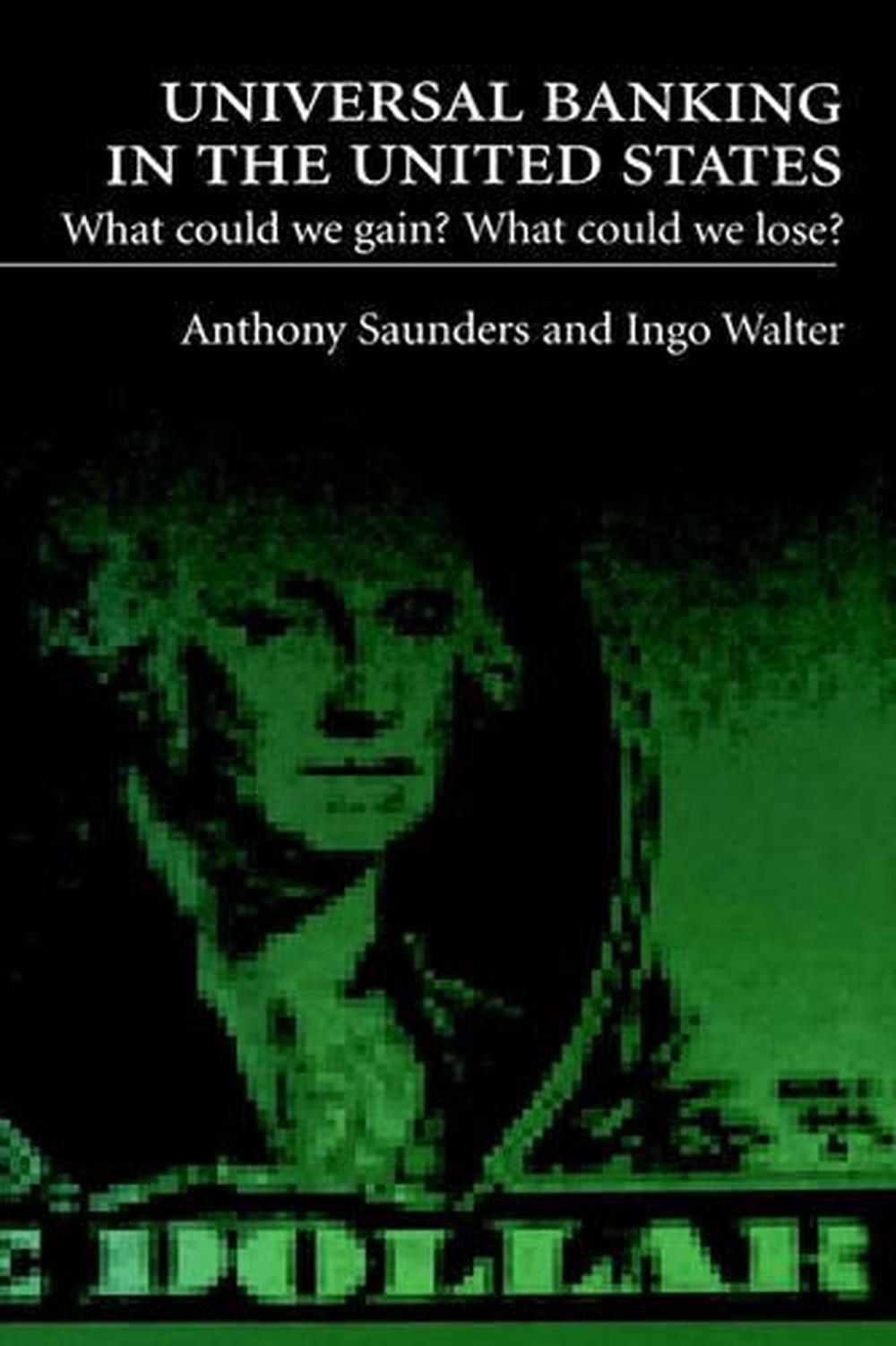
Universal Banking in the United States
what could we gain? what could we lose?
- Hardcover
288 pages
- Release Date
10 February 1994
Summary
In 1933 and 1956, the United States sharply limited the kinds of securities activities, commercial activities, and insurance activities banks could engage in. The regulations imposed on banks back then remain in place despite profound changes in the economic environment, in the structure of the national and international financial markets, and in technology. In this span of time many industries, especially those confronting global competition, have transformedthemselves dramatically in their …
Book Details
| ISBN-13: | 9780195080698 |
|---|---|
| ISBN-10: | 0195080696 |
| Author: | Anthony Saunders, Ingo Walter |
| Publisher: | Oxford University Press Inc |
| Imprint: | Oxford University Press Inc |
| Format: | Hardcover |
| Number of Pages: | 288 |
| Release Date: | 10 February 1994 |
| Weight: | 627g |
| Dimensions: | 241mm x 161mm x 29mm |
You Can Find This Book In
What They're Saying
Critics Review
“Universal Banking in the United States is an excellent book that provides a careful, in-depth analysis of the case for and against a shift to universal banking in the US…Quite readable and extremely interesting. It is of interest to a wide audience, including bankers, regulators, and lobbyists, and should be read by every US legislator.”–Bankers Magazine”That powers will be expanded for U.S. banks is a foregone conclusion, the only question is when and how. In this book, Saunders and Walter provide bankers, regulators, and the public with a roadmap of both the consequences of permitting banks to offer different types of new activities and the experiences of foreign countries with alternative forms of universal banking.“–George G. Kaufman, Loyola University”Saunders and Walter explain why and how the U.S. can benefit from adopting a regulatory structure that simultaneously relaxes restraints on the activities of private institutions and tightens restraints on these institutions’ government supervisors. The key to safely unfettering government-guaranteed private players is to ensure that sensible capital requirements are formulated and enforced.“–Edward J. Kane, Boston College”Universal Banking in the United States: What could we gain? What could we lose? by Anthony Saunders and Ingo Walter provides a very good exposition of the market, regulatory, and policy dimensions associated with developing a universal banking system in the United States. The book is highly recommended to those who would like to get a better understanding of the pros and cons of universal banking.“–The Financier: ACMT”The authors provide a wide-ranging, detailed survey of institutional differences in regulation and business practices of banking systems in various countries… this is a commendable book full of useful information, which provides a wealth of careful and accessible analysis for public policy makers, scholars, and graduate students interested in bank regulatory reform.“–Journal of Economic Literature”Universal Banking in the United States is an excellent book that provides a careful, in-depth analysis of the case for and against a shift to universal banking in the US…Quite readable and extremely interesting. It is of interest to a wide audience, including bankers, regulators, and lobbyists, and should be read by every US legislator.“–Bankers Magazine”That powers will be expanded for U.S. banks is a foregone conclusion, the only question is when and how. In this book, Saunders and Walter provide bankers, regulators, and the public with a roadmap of both the consequences of permitting banks to offer different types of new activities and the experiences of foreign countries with alternative forms of universal banking.“–George G. Kaufman, Loyola University”Saunders and Walter explain why and how the U.S. can benefit from adopting a regulatory structure that simultaneously relaxes restraints on the activities of private institutions and tightens restraints on these institutions’ government supervisors. The key to safely unfettering government-guaranteed private players is to ensure that sensible capital requirements are formulated and enforced.“–Edward J. Kane, Boston College”Universal Banking in the United States: What could we gain? What could we lose? by Anthony Saunders and Ingo Walter provides a very good exposition of the market, regulatory, and policy dimensions associated with developing a universal banking system in the United States. The book is highly recommended to those who would like to get a better understanding of the pros and cons of universal banking.“–The Financier: ACMT”The authors provide a wide-ranging, detailed survey of institutional differences in regulation and business practices of banking systems in various countries… this is a commendable book full of useful information, which provides a wealth of careful and accessible analysis for public policy makers, scholars, and graduate students interested in bank regulatory reform.“–Journal of Economic Literature
About The Author
Anthony Saunders
Anthony Saunders is the John M. Schiff Professor of Finance and the Chair of the Department of Finance at the Stern School of Business at New York University. Professor Saunders received his PhD from the London School of Economics and has taught both undergraduate and graduate level courses at NYU since 1978. Throughout his academic career, his teaching and research have specialized in financial institutions and international banking. He has served as a visiting professor all over the world, including INSEAD, the Stockholm School of Economics, and the University of Melbourne. He is currently o
Returns
This item is eligible for free returns within 30 days of delivery. See our returns policy for further details.




